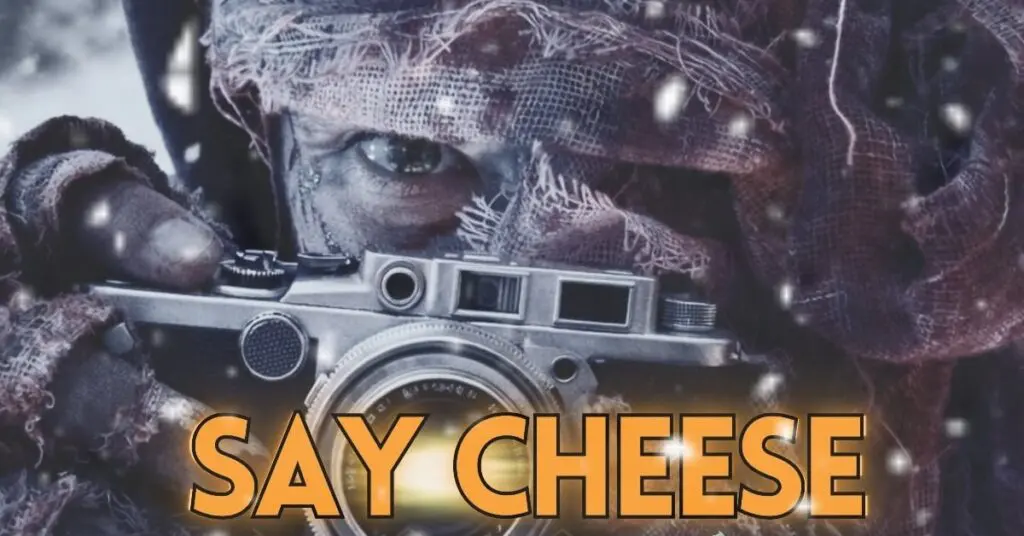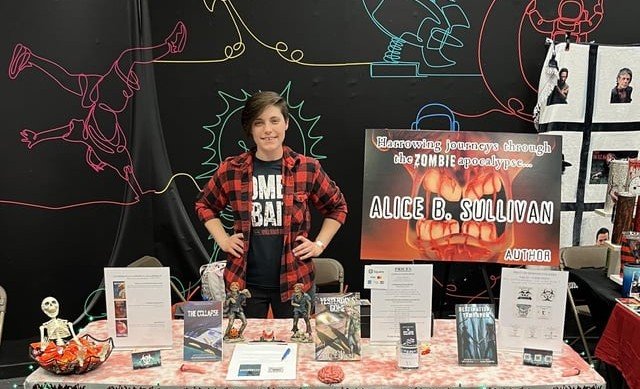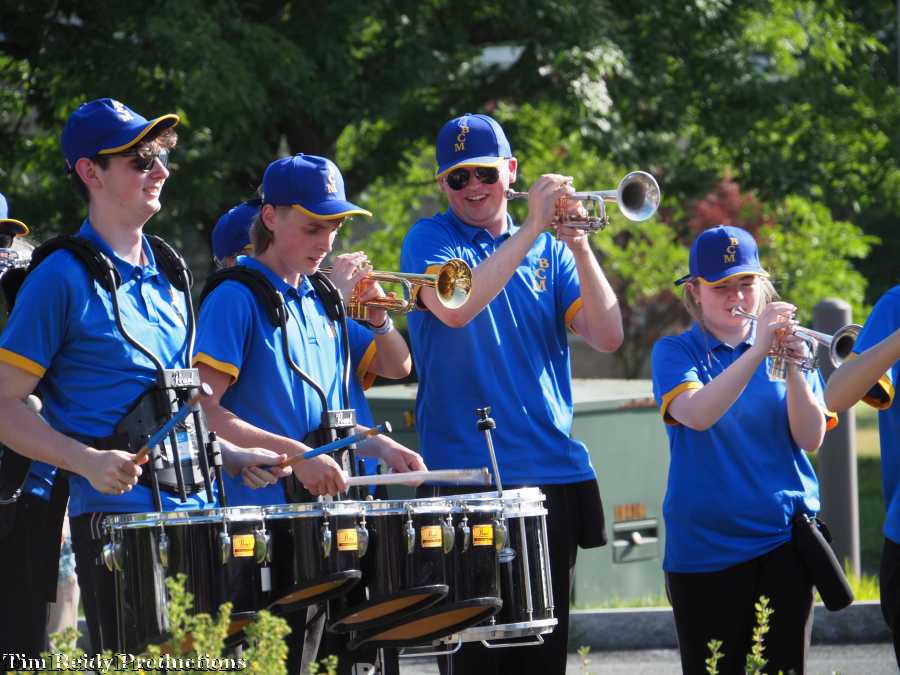Deke Dickerson – Xperience History
By Staff on July 7, 2024
Sixteen Tons, The Merle Travis Story by Merle Travis & Deke Dickerson
Review/Interview by Ed Conway
Who is Merle Travis? Unless you are a guitar geek, or an original country music fan, you may not know. He was not just a guitarist, but a man who popularized such a unique style, they named the use of the thumb and index finger to play both bass and melody at the same time “Travis Picking.” A style he learned from his Muhlenberg County Kentucky childhood home. He appeared in “From Here to Eternity” and many other movies. He hung around, and also toured with Gene Autry, Tex Ritter and Johnny Cash. He wrote “Sixteen Tons”, popularized by Tennessee Ernie Ford. He appeared on the old “Hee Haw” program with his old band mate Grandpa Jones. He was a fine cartoonist as well as prolific writer, including later year episodes of “Hee Haw.”
The book is credited to both Merle Travis and Deke Dickerson, and the early chapters are organized with the first part written by Merle and a follow up by Deke to add details and put things in historical context. This continued until the mid-50s where Merle’s writing had ended. There are a ton of photos documenting much of what is written, including what may very well be the very first design of a solid body electric guitar by Merle, and built by Paul Bigsby (a guitar Leo Fender, yeah that Fender, borrowed just before releasing an electric guitar of his own that later became the Telecaster).
I spoke with one of the biggest guitar geeks I know, Deke Dickerson, who decided it was time to write about this wonderfully talented, as well as, flawed man, so that people could get to know an important cog in American music history. Dickerson has written “The Strat in The Attic” and the “Strat in The Attic 2” about the sometimes random ways people have come across historically significant guitars and too many music related articles to mention here. He is also a fine musician who has backed up many of the old-time greats at various music festivals around the world.
RRX: When did you start playing guitar?
DD: I originally took guitar lessons when I was seven or eight years old, and I had this horrible teacher who was a very strict classical guitar teacher. I borrowed this classical guitar from a neighbor and this woman was like this classic Nurse Ratchet type where she would scold you for doing this wrong and not holding your hand in this position. I didn’t last very long, and I really hated it.
Then when I was about 13, I saw Chuck Berry duck-walking and playing electric guitar, so I asked for an electric guitar for a birthday present and just started teaching myself at that point.
RRX: I guess Chuck was one of your idols. When did you discover Merle Travis? I know with me, it was late in life.
DD: I got into rockabilly, country, blues and doowop when I was pretty young. I was doing a radio show on this public radio station in my hometown of Columbia, Missouri starting around the age of 13. And I got exposed to a lot of stuff and there was a lot of bluegrass in my hometown. So, you’d hear people like Doc Watson talking about Merle Travis. It was a few years later, not until my early 20s that I got a copy of the yellow album, “Merle Travis Guitar”. Of course, if you’re a guitar player and you hear that album, you’re just like oh my god this guy is one of the absolute masters, one of the best that ever lived. I still feel that way about that album.
RRX: Why did you choose to do a book about Merle?
DD: I’m a writer, and a music historian, and I have a ton of books, and I feel like I’m pretty well versed in what’s out there and it started bugging me, why isn’t there a Merle Travis book. Especially since he was known as being a writer. A guy that probably was one of the smartest and he could really write a story, he could put pen to paper and write a great story. So, it sort of befuddled me that there was no Merle Travis book. His two daughters that are still alive, live out here in Southern California, Merlene and Cindy, and I would meet them at events, like at a Marty Stuart show and once at the Grammy Museum, and just kind of introduced myself and I just kept hammering on them I said look there really needs to be a book. They really wanted there to be a movie and I said, well look, you can’t have a movie unless you have a book first and I think I’m the guy to do it. That eventually led them to take me to the storage unit up where all of Merle’s things were and had been there since his last wife [Dorothy] had died. In that was a mind-blowing array of stuff, guitars, stage suits, photographs, letters, memorabilia, reel to reel tapes, just all kinds of stuff and in there was about 80-100 pages of autobiographical writing that he had started on but had never organized. He never finished it. It was just kind of raw writing. So, I took that to Scott Bomar at BMG Books and said look, we discovered this unpublished writing that Merle did, and I really want to do a book and I think between this and the stuff that we discovered it’s going to be a really amazing book. So luckily, he agreed and signed me on to do a book with BMG and the whole thing got started.
RRX: It’s wonderful that the family trusted you to tell the story.
DD: They’re super nice people, I got lucky with Merlene and Cindy because they grew up in Southern California and we’re kind of on the same wavelength. It was a real godsend that we liked each other and got along together.
RRX: We know Merle had a lot of problems to go along with the genius, how hard was it to write about the bad, along with the good, knowing the family was going to read it.
DD: The stories are sort of legendary, lots of people would repeat the stories about the drinking and the pills and the shootout with the police that happened in 1956. Those stories I heard repeated as soon as I started hanging out with the older guitar players that knew Merle Travis, like everybody knew those stories. So, when it came time to do the book, luckily, Merlene and Cindy said, “you just have to write the truth, good and bad, there’s lots of both and just tell the true story”. I think that, especially in 2022, it’s a lot different than if I had written it 30 years ago, people just kind of expect a hard-hitting story that tells the truth. It used to be you’d sort of have to dress it up and make it smell like flowers, and nobody really expects you to do that anymore. I think at the end of the day, it’s the best book that could have been written about the guy.
RRX: I enjoyed the book but felt sad the hard life shortened his life earlier than it should have.
DD: Yeah, but on the other hand, I always tell people, it’s a real testament to how much punishment the human body can take. He lived to be 65 years old. It’s like him and Jerry Lee Lewis, those guys should have died in their 30s with all the abuse they gave their bodies. They both lived to be old men.
RRX: There was an amazing list of interviews you did for your book, and I noticed Thom Bresch (rumored to be Merle’s illegitimate son) had passed away this past May, did he get a chance to see the book?
DD: He did not. I spent three days with him in Nashville while I was doing interviews for the book, so we spent a lot of time together and he basically knew what the book was going to be about. One thing that happened, I think, right before the pandemic, was he finally agreed to do a DNA test that proved he was Merle’s son, a thing that had been in doubt for decades. It wasn’t really in doubt, but he refused to take the test, so everyone wondered why he refused. Everything was sorted out before he got sick and passed away, and he was happy about that. It kind of breaks my heart that he didn’t live to see the book come out. I interviewed all of these people in their 90s as well, about a half a dozen of them, and every single one of them passed away before the book came out. When I signed the book contract in 2018, that was immediately who I sourced out was the 90 years old people because you just never know.
RRX: I grew up watching “Hee Haw” but didn’t realize I had seen him.
DD: That was difficult to research because he appeared on the show a few times and I think he was a writer on the show right at the very end. But basically, everyone who was involved with the show is dead so there is no documentation, and it was difficult to find out exactly when that happened.
It’s a book about a guitar player, but it’s also a book about a guy who was very important in American musical history there’s lots of entertaining stories about people like Johnny Cash, Gene Autry and so on that will entertain people who don’t even have interest in country music or guitar. That’s how I tried to write it is that people who had no idea who Merle Travis was, will find it an entertaining book to read.
As of this writing, Merle’s daughters were happy with the end result. A script has been written for the production of a stage play and eventually they wish to have a biopic movie produced as well.
You can order the book at your favorite bookstore or online at Amazon.com.





 RadioRadioX
RadioRadioX